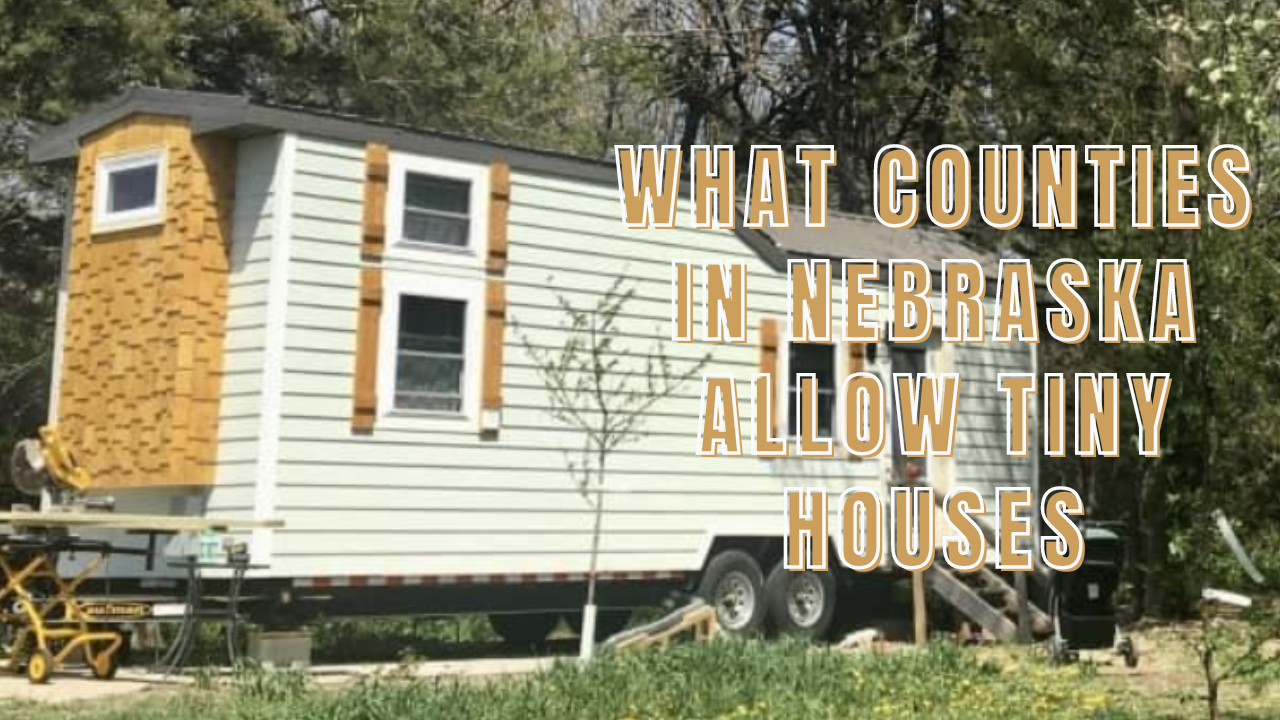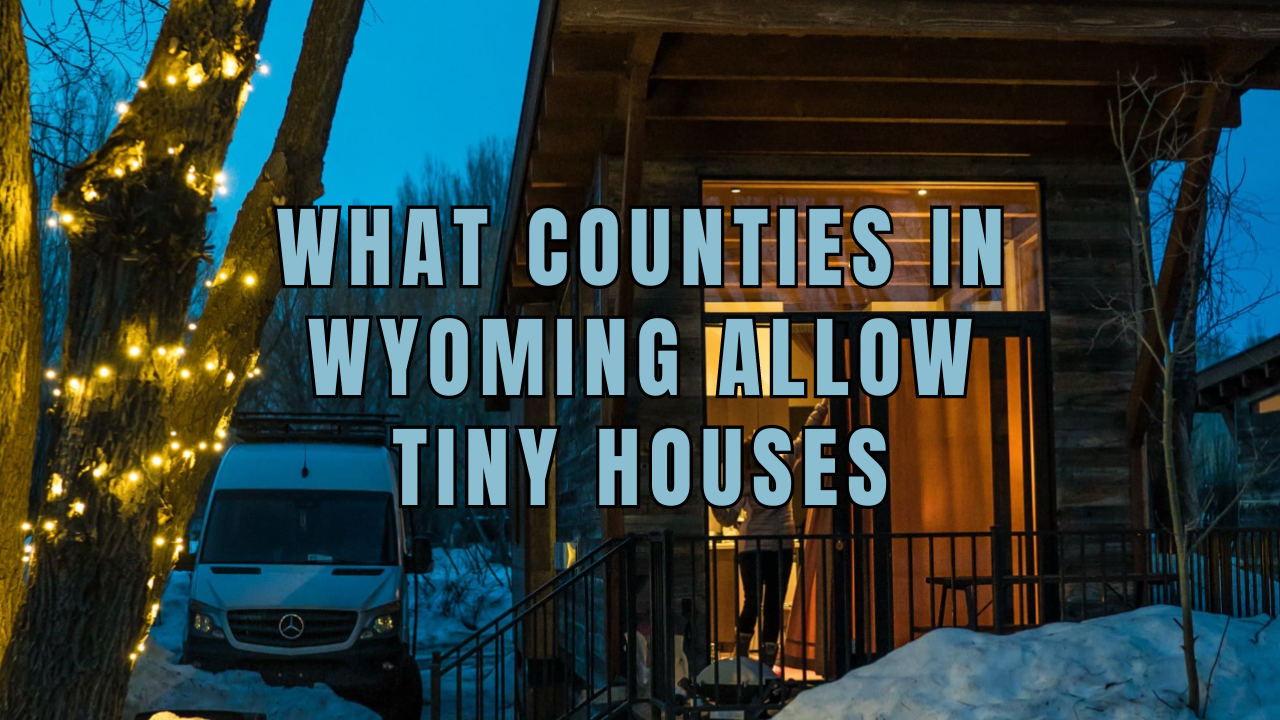In this piece, we will explore the legal status of tiny houses in Nebraska, a state with a low cost of living and a diverse landscape. We will examine which counties in Nebraska allow tiny houses, and what some of the regulations and rules that prospective owners need to consider.
We will also discuss the benefits and the challenges of living in a tiny house in Nebraska and buying a tiny home near me. Moreover, it provides some examples of successful tiny house communities in the state. By the end of this post, you will understand the opportunities and obstacles that tiny house enthusiasts face in Nebraska.
Tiny House Prices in Nebraska
Once you’ve embarked on your tiny house adventure, you want to know the pricing options that will fit your budget and ideal tiny home.
Wonderful news! We provide a solution to suit every need and price range, letting you get your house-building project underway. Examine the tiny homes for sale in Nebraska.
What Counties in Nebraska Allow Tiny Houses?
Several counties in Nebraska allow tiny houses, including Madison and Lancaster counties. Each county has different regulations and zoning laws regarding tiny houses, so research and understand the specific requirements before building or living in a tiny house. Some counties have minimum square footage requirements, while others have restrictions on where tiny houses can be within the county.
Madison County
Madison County, Nebraska authorized tiny dwellings on foundations exclusively in September 2022. Across the county, tiny houses on wheels still need to be parked at approved campsites.
Lancaster County
Only 320 square feet or less is the minimum size requirement for tiny houses in Lancaster County, Nebraska. While mobile homes must be in campsites approved for the parking of recreational vehicles, tiny houses on foundations are legal.
Tiny House Regulations And Rules In Nebraska
Tiny house regulations vary by county and city. Some areas welcome tiny houses, while others have strict zoning and building codes. For example, some places require minimum square footage for a home, which may make it difficult for tiny house enthusiasts to find a suitable location.
Permanent Structure Rules
Less stringent regulations usually apply to tiny dwellings on foundations. Therefore, compact living is a great choice for those looking to reduce restrictions and transition to a more minimalistic lifestyle. However, it’s important to note that these dwellings are fixed to a permanent base and cannot be moved. Therefore, you cannot travel with your tiny houses on a foundation attached to your truck.
Following the International Residential Code IRC, there are some requirements:
- It should be possible for the foundation to support any weight put on it and transfer that weight to the supporting soil.
- The property should be graded to direct surface drainage to a storm sewer system.
Permanent buildings are not limited to foundation requirements. In addition, they comply with municipal construction codes. Also, permanent constructions must be linked to water, power, and sewage infrastructure.
Temporary Structure Rules
Temporary small dwellings or tiny homes on wheels (THOW) are on the foundations of automobiles, as their other name implies. It ensures that the residence is transported initially and in the future. Often, a tiny house on wheels is a travel trailer, park trailer, motor home, or recreational vehicle.
- Building a temporary tiny house on wheels requires following the Park Model Recreational Vehicles Standard.
- THOWs require a federal label verifying adherence to these requirements.
- Compared to permanent small houses, temporary tiny house laws are more stringent. Because permanent constructions are subject to stricter IRC regulations than recreational vehicles.
Transitional Structure Rules
Transitional constructions are not acceptable places to live. Regulations about transitory buildings are quite stringent. It is for the occupants of these houses’ protection.
It is necessary to verify local laws and ordinances if you intend to reside in a transitional building, such as a tiny home. Obtaining permits from the local building authority is crucial to guarantee the facility complies with relevant safety rules.
In Nebraska, Where Can I Build A Tiny House?
Location for your tiny house is fundamental. To assist you with the building, taking care of any necessary documentation, and ensuring that your home conforms with building standards. Choose a licensed tiny home builder!
Correctly done, building a tiny house doesn’t have to be difficult, even though it does take a lot of work. Tiny homes are found in the following areas:
- RV parks
- National Parks and campgrounds
- Tiny house communities
- Private properties
Tiny Home Communities in Nebraska
Tiny home communities are not yet in the state. However, there are two communities in progress:
Omaha Green
Omaha Green Cohousing (OGC), an intentional living community in Omaha, Nebraska, is now under development. The designers want to build a home that emphasizes aspects of a more straightforward lifestyle.
The Cottages
The Cottages, a tiny house community project in Omaha, is now being built by The Siena Francis House. Located in north downtown Omaha, close to 17th and Charles streets, the neighborhood will occupy approximately 2.4 acres. Around fifty tiny houses will be constructed, each with a floor size of around 275 square feet meant for a single owner.
A living space, bedroom, kitchen, bathroom, and covered porch will be features of each home. Among the neighborhood’s features are the next: a community center, gardens, and a common wash facility.
Tiny House Builders Near Me
Great Lakes Tiny Homes offers a wide range of tiny homes shipped anywhere in the country, so you don’t need to search for local builders to discover your dream home.
Great Lakes Tiny Homes is a constructor that got approval from the RV Industry Association (RVIA). It is committed to maintaining the highest manufacturing standards with stringent safety, regulatory, and small home construction criteria.
Do I Need a Certified Builder?
Yes, you do. Also, a do-it-yourself project might be something you try but it comes with dangers and uncertain consequences.
Dealing with an RVIA-certified builder, like Great Lakes Tiny Homes, guarantees that the tiny house you own is under rules and specifications.
It also provides peace of mind since it guarantees that the materials in your home are high-quality, safe, and durable.
Working with a qualified builder also makes it easier for you to get insurance and financing. You may be sure your small house is safe and livable by adhering to RVIA regulations.
FAQs
Can You Make a Tiny House in Nebraska Your Main Residence?
In Nebraska, it’s acceptable to live in a tiny house full-time.
Remember that local rules and ordinances vary based on your place of residence. To ensure compliance with applicable rules and regulations, including inspection requirements, consult local governments and zoning authorities regarding your small house.
You may live more eco-friendly and relaxed in Nebraska if you work with licensed builders.
In Nebraska, How Tiny Can a Home Be?
Usually, 120 square feet is the minimal size. 320 or 400 square feet is the maximum size, depending on the kind of tiny house. However, according to the International Residential Code, the Nebraska Modular Housing Unit Label has a minimum of 120 square feet and a maximum of 400 square feet.
Does My Nebraska Tiny Home Require Me to Pay Property Taxes?
Nebraska is a great spot to live in a tiny house since you might not have to pay taxes on the property. However, you will be paying property taxes if you are the owner of the land on which the tiny dwelling is.
But if you don’t own the land, you won’t have to pay property taxes. Your tiny house must be registered as a recreational vehicle for personal property taxation purposes if it is mobile.
Conclusion
Instead of having state-wide regulations governing tiny houses, Nebraska accepts three types of tiny houses as potential small homes: transitional, temporary, and permanent. Each building has a state or federal label proving it complies with all applicable building codes.
In addition, potential tiny homeowners need to inquire about the local zoning authorities’ regulations on the land use, location, and size of their proposed homes.
Some Nebraska counties are building small house communities looking forward to facilities and support systems, making them more accommodating like all other houses.





